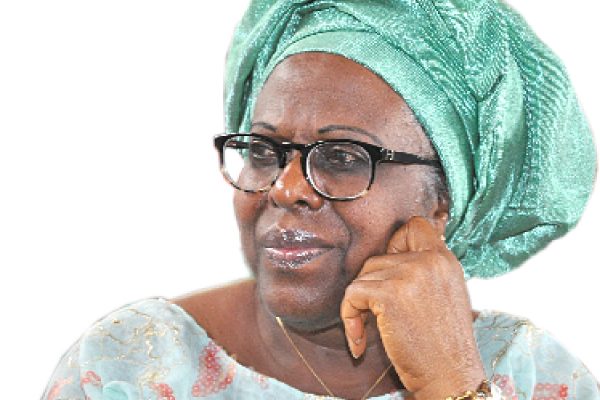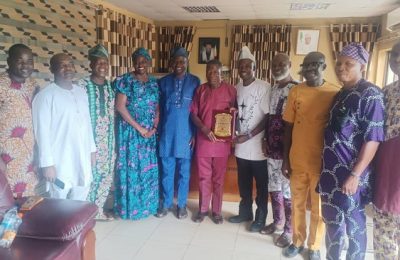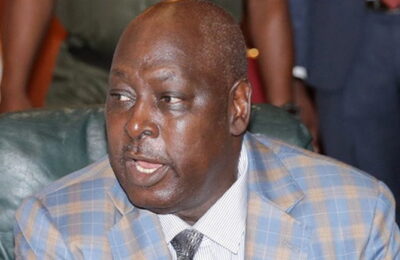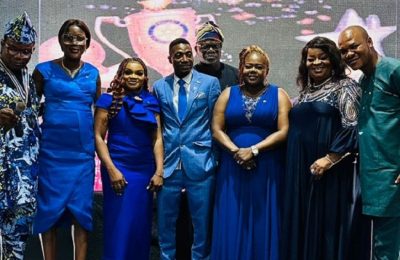YEARS ago, a phenomenal star ruled the Nigerian political landscape. This star galvanised the Independent movement, rode a thorny path through the Independence celebrations, positioned a region for unmatched excellence through revolutionary policies and programmes, rescuing millions from generational poverty and providing a bulwark against ignorance and disease; taught the nation how to lead the continent and the region how to lead the nation; exemplified the role of the philosopher-king theorized by the Greek teacher Plato in a post-independence context, defeated the racist assumption that Africans could not rule themselves, and set the everlasting parameters by which African leaders would be judged.
Black Africa obtained independence with latent resources waiting to be exploited to build the future: Jeremiah Obafemi Awolowo was one of the social poets who harnessed the resources in his environment to show the world what transformational leadership means in practical steps, long before it became a mere catchphrase; the man who led a region that paid higher wages than the centre, that had the television before Southern France, that achieved things the United Nations would in later years strive towards as Millenium (now Sustainable) Development Goals; not just a “star gazer” in the Platonic conception but a revolutionary spirit, a lifter and upholder of the Black race, the ultimate exemplar of institutional excellence. The achievements of Awo, as the sage is fondly called, are too daunting to even list. Between 1954 and 1959, he implemented the first, and yet unmatched, free primary education programme in Africa and the first free medical scheme in Nigeria for children up to the age of 18. He built the first TV Station in Africa and set up the most efficient civil service in Africa which, from October 1954, received a minimum wage that was double the sum paid to workers in other parts of Nigeria; and the first modern sports facility in Nigeria, the Liberty Stadium.
But yesterday is not today and, ruminating on the sad fate of many great men, Africa’s foremost novelist, Chinua Achebe, wrote in his epochal Things Fall Apart: “Living fire begets cold, impotent ash.” Well, not in the case of Obafemi Awolowo, whose ideas are widely considered to be the pathway to a productive Nigerian future today, nearly four decades after his transition. According to Toyin Falola, Emeritus Professor of History, “Awo has been remarkably immortalised, not only in his public works but in the private as well. Awoism, in this part of the country, plays the same role as democracy in global politics. Graciously, the fear that this idea could be bastardised by political actors laying claim to it has been alleviated through the agency of his children. The Obafemi Awolowo Foundation (OAF), established and managed by his family, has ensured the protection of the sanity of that idea.”

Headquartered at Gbagada, Lagos, the OAF led by its Executive Director, Ambassador (Dr) Olatokunbo Awolowo-Dosumu, is an apex mint for fresh ideas on national development where Nigeria’s best thinkers engage the challenges of nationhood and proffer solutions based on the template set by the sage. Founded in 1992 as a non-profit and non-partisan organisation, the OAF is widely acknowledged as a leading authority in the propagation of the ideas and philosophy of the sage, anchored essentially on leadership as a tool of social transformation guaranteeing “Life more Abundant” for the populace.
The Foundation’s objectives are to: undertake and sponsor research on a broad range of public policy issues aimed at ameliorating poverty and unemployment and at promoting social justice, individual and press freedom, the rule of law and independence of the judiciary; provide a forum for frequent and fruitful interaction between policy makers, reputable academics and the general public, so that each party will be enriched and public policy upgraded; make available to the general public and relevant authorities the findings and conclusions of its research; advance public awareness and discussion of the great issues of the day and thereby enhance the participatory capacities of civil organizations in the formulation of public policy; promote learning and research in diverse academic disciplines through the award of scholarships and grants, and the endowment of professorial chairs; seek to advance the cause of North-South cooperation and the evolution of a more equitable global system; and, critique, elucidate and disseminate the teachings and ideals of Chief Awolowo.
In grappling with Nigeria’s developmental issues, the Foundation has published mountains of monographs and books, including Nigeria: The way forward: Proceedings of the First OAF Dialogue edited by Omafume Onoge, Nigeria and Education: The Challenges Ahead, Nigeria in search of Leadership, Nigeria: Democracy and the Rule of Law, Nigeria: Towards a Youth Agenda for the 21st Century, Healthcare in Nigeria: Present Status, Future Goals; Nigeria’s Endangered Environment: Agenda for a New Millennium, Nigeria: Path to a Sustainable Democracy, The Face of Poverty, Awo: On the Trail of a Titan, and His Truth is Marching On.

Speaking at the the Obafemi Awolowo Centenary Celebrations, a former UN Secretary General quipped: “Fifty years ago, Awo warned about the street-beggar attitude where Africa was happy to accept whatever fortune came their way from natural resources. He was right. And we don’t need to look outside Africa to find a better model.” That is why the OAF, by self-description a think-tank devoted to the analysis of important policy problems and dedicated to the principles of public welfare, responsible, free enterprise, social democracy, a federal and republican Nigeria, an economically self-reliant Africa- and a stable and equitable global system, looks inwards. In lectures, symposia and other public engagements, the Foundation has over the years sought to chart pathways to development for governments in Nigeria and beyond. In particular, the Obafemi Awolowo Prize, instituted in honour of the first Premier of Nigeria’s Western Region who is widely acknowledged as Nigeria’s most distinguished thinker, change agent, philosopher and the greatest president Nigeria never had, is widely coveted. With ex-Commonwealth Secretary General Anyaoku as chairman of the Selection Committee, members of the Technical Committee saddled with the onerous task of sifting through the many submissions and identifying the candidate with the most compelling vision make their choice looking at the characteristics of Chief Awolowo’s excellent leadership, namely integrity, credibility, discipline, courage, selflessness, accountability, tenacity of purpose, visionary and people-centred leadership.

And so, today, Lagos, Nigeria’s economic capital, is witnessing an intellectual festival as all roads lead to the Lagos Continental Hotel, Victoria Island where, at a ceremony to be attended by President Bola Ahmed Tinubu, Samia Suluhu Hassan, President of the United Republic of Tanzania; former Head of State, General Yakubu Gowon; governors, traditional rulers and captains of industry, the President, African Development Bank (AfDB), Dr Akinwumi Adesina, will be garlanded with the 2023 Obafemi Awolowo Prize for Leadership. Adesina, a former Minister of Agriculture currently serving a second term as President of the AfDB, was unveiled to roaring applause around the world last year, winning the award with a stellar cast of global voices behind him, including former British Prime Minister Tony Blair, former President Goodluck Jonathan, Ambassador Kenneth Quinn, President Emeritus of the World Food Prize Foundation; former UN Secretary-General Ban Ki-moon and Global Center on Adaptation CEO, Prof. Dr Patrick Verkooijen.
Adesina is only the fourth recipient of the prize first won in 2012 and presented in 2013, with the Nobel Laureate Wole Soyinka, former South African President Thabo Mbeki, and the foremost lawyer and educationist, Chief Afe Balalola (SAN) coming ahead of him. The award has the goal of encouraging, recognizing, rewarding and celebrating excellence in leadership, and Adesina is a winner whose track records testify to the continuing relevance of the ideas that the sage lived for.
READ ALSO: Decomposing body found near filing station in Ebonyi








